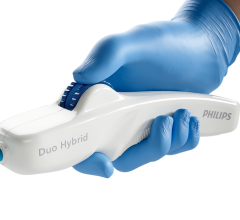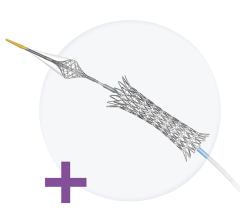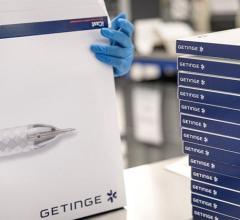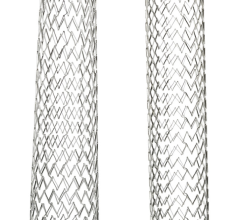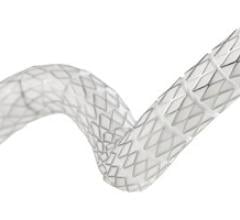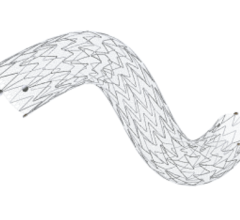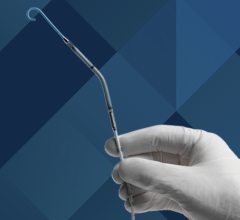
March 24, 2009 - Abbott said today it initiated the next phase of the ABSORB clinical trial to evaluate the safety and performance of the company's fully bioabsorbable drug-eluting coronary stent.
This second phase of the ABSORB clinical trial will enroll approximately 80 patients at 10 centers in Europe, Australia and New Zealand, and will incorporate device enhancements designed to improve deliverability and vessel support. The first patient was enrolled into the second stage of the ABSORB clinical trial at Onze Lieve Vrouw Ziekenhuis Hospital in Aalst, Belgium, by Bernard De Bruyne, M.D., Ph.D.
"Interventional cardiology has come a long way. It started with balloon angioplasty, which evolved into bare metal stents and then drug eluting metal stents were created," said Patrick W. Serruys, M.D., Ph.D., professor of interventional cardiology at the Thoraxcentre, Erasmus University Hospital, Rotterdam, and principal investigator of the ABSORB trial. "Now we have the fourth revolution in interventional cardiology technology, and patient outcomes from the first stage of ABSORB clearly show that bioabsorbable devices are the future of coronary artery disease treatment."
Results from the first stage of the ABSORB trial with 30 patients demonstrated that Abbott’s bioabsorbable everolimus eluting stent successfully treated coronary artery disease, and that at two years, the treated vessel was able to expand and contract, without being restricted by a permanent implant – indicating that the device was absorbed. In addition, there were no cases of thrombosis out to two years of follow-up, and no new major adverse cardiac events (MACE) between six months and two years, with the bioabsorbable device demonstrating a MACE rate of 3.6 percent (one patient) at two years. MACE is a composite clinical measure of safety and efficacy outcomes, defined as any event that resulted in re-treatment of the treated artery lesion (ischemia-driven target lesion revascularization), heart attack (myocardial infarction) or cardiac death.
"Based on the strong clinical outcomes from the first stage of Abbott’s bioabsorbable device trial, interventional cardiologists have been eager to enroll their patients into the second stage of the trial," said John Ormiston, M.D., medical director at Mercy Hospital in Auckland, New Zealand, and co-principal investigator in the ABSORB trial. "If the bioabsorbable stent continues to perform well in this trial and subsequent larger trials with more complex narrowings, bioabsorbable device technology may become the new standard of care for patients with coronary artery disease."
Abbott is the only company with long-term clinical data (out to two years) evaluating the safety and performance of a fully bioabsorbable drug eluting coronary stent. Abbott’s bioabsorbable everolimus eluting coronary device is made of polylactic acid, a proven biocompatible material that is commonly used in medical implants such as absorbable sutures. As with a metallic stent, Abbott’s bioabsorbable device is designed to restore blood flow by propping a clogged vessel open, and to provide support until the blood vessel heals. Unlike a metallic stent, however, a bioabsorbable device is designed to be slowly metabolized by the body and completely absorbed over time.
The ABSORB trial is a prospective, non-randomized (open label), two-phase study designed to enroll approximately 110 patients in Australia, Belgium, Denmark, France, the Netherlands, New Zealand, Poland and Switzerland. Key endpoints of the study include assessments of safety – MACE and stent thrombosis rates – at 30 days; six, nine, 12 and 18 months; and two years, with additional annual clinical follow-up for up to five years, as well as an assessment of the acute performance of the bioabsorbable drug eluting stent, including successful deployment of the system. Other key endpoints of the study include imaging assessments by angiography, intravascular ultrasound (IVUS), optical coherence tomography (OCT), and other state-of-the-art invasive and non-invasive imaging modalities at six months, one year and two years.
Abbott’s bioabsorbable drug eluting device delivers everolimus, a drug that inhibits tissue proliferation. The device props open and supports a narrowed blood vessel until the vessel heals, restoring blood flow, and is absorbed over time by the vascular tissue as part of the body’s normal processes. If clinical results are positive, bioabsorbable drug eluting stents could eventually offer an alternative to the metallic drug eluting stents available to patients today.
For more information: www.abbott.com


 November 24, 2025
November 24, 2025 


